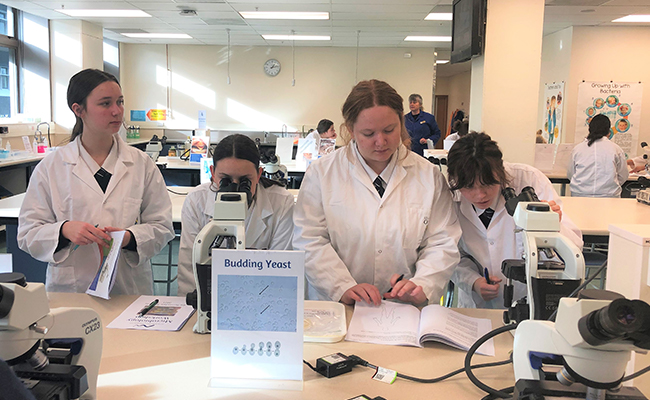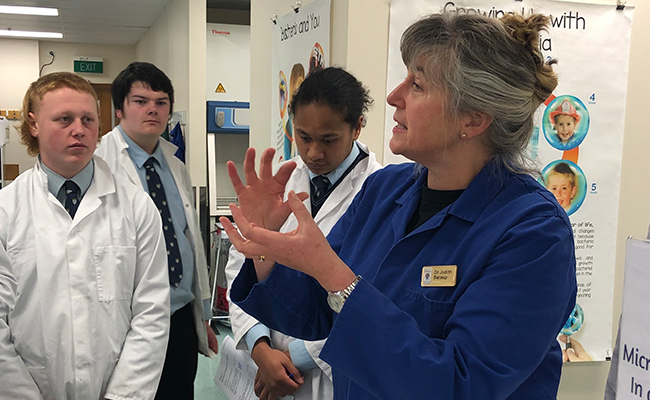Tuesday 20 July 2021 9:05am

Studying budding yeast. Over 8,000 students have been through these Microbiology workshops over the 15 years they’ve been running.
Every year, while university students are enjoying their mid-year break, the Department of Microbiology and Immunology labs become a place of discovery for Year 11 biology and science students. This is a chance to discover a tiny world through the microscope and learn how it affects almost every aspect of life on our planet.
In the 15 years these workshops have been running, more than 8,000 students and their teachers from across the Otago region have come and explored the largely unseen world of microorganisms.
Dr Judith Bateup, Senior Teaching Fellow in the Department of Microbiology and Immunology was key in establishing and developing these workshops and still teaches them today.
“It is a privilege to host these engaged young scientists and explore aspects of microbiology and immunology with them,” Dr Bateup says.
When Dr Bateup began her teaching role, she explored barriers new students faced, and realised that difficulties in teaching microbiology in schools led to a low understanding or even awareness of the subject. The workshops are also intended to break down some of the barriers between secondary school and university, giving the students some insight into what learning microbiology would be like.

Dr Judith Bateup talks with a group from Kings’ High School. While university students are enjoying their mid-year break, the Department of Microbiology and Immunology labs become a place of discovery for Year 11 biology and science students.
“Judith is amazing. This programme keeps kids engaged looking at little snippets and it’s at the correct level for them. I got a thank you from the Mum of a student who came home fizzing about what they’d done. He was a farm boy so really understood a lot of the work with antibodies. It breaks down the barriers of university and open it up as an option to so many more students,” Vicki Jepson, Head of the Department of Science at Kings’ High School, says.
During the workshop, the students rotate around seven learning stations investigating different aspects of microorganisms and then explore with microscopes later in the day. Investigations include a sample taken from the surface of students’ teeth - there are more microorganisms in each person’s mouth than people on earth.
This year 18 groups from seven schools visited, including students from Te Aho o Te Kura Pounamu (The Correspondence School) for the first time.
“It’s very interesting to see how our world works and how education at university works. It’s also good to find out how comfy the lab coats are,” Walt J. Henderson, attending from Otago Girls' High School, says.
